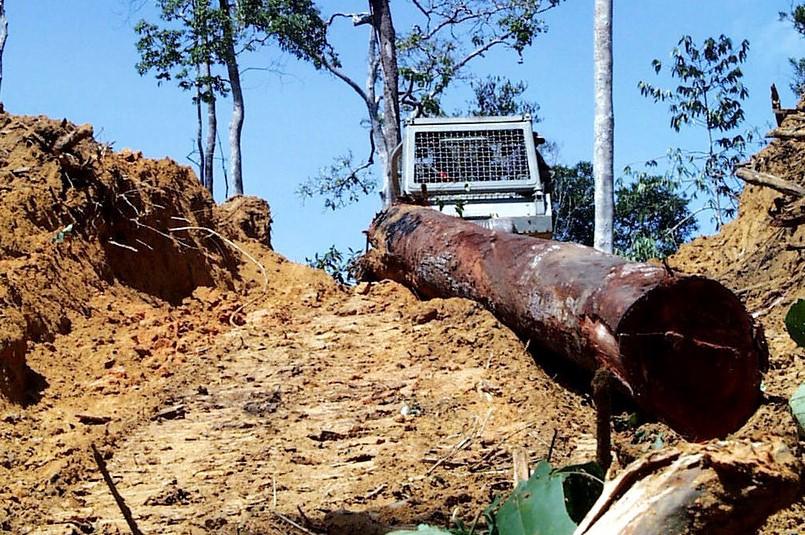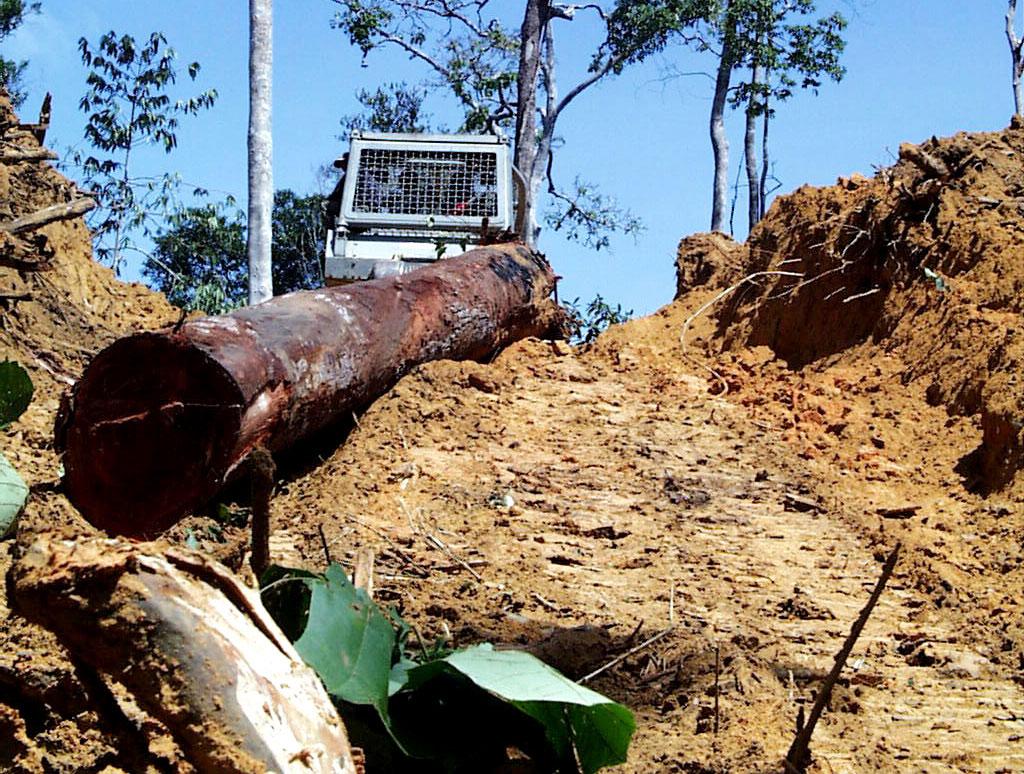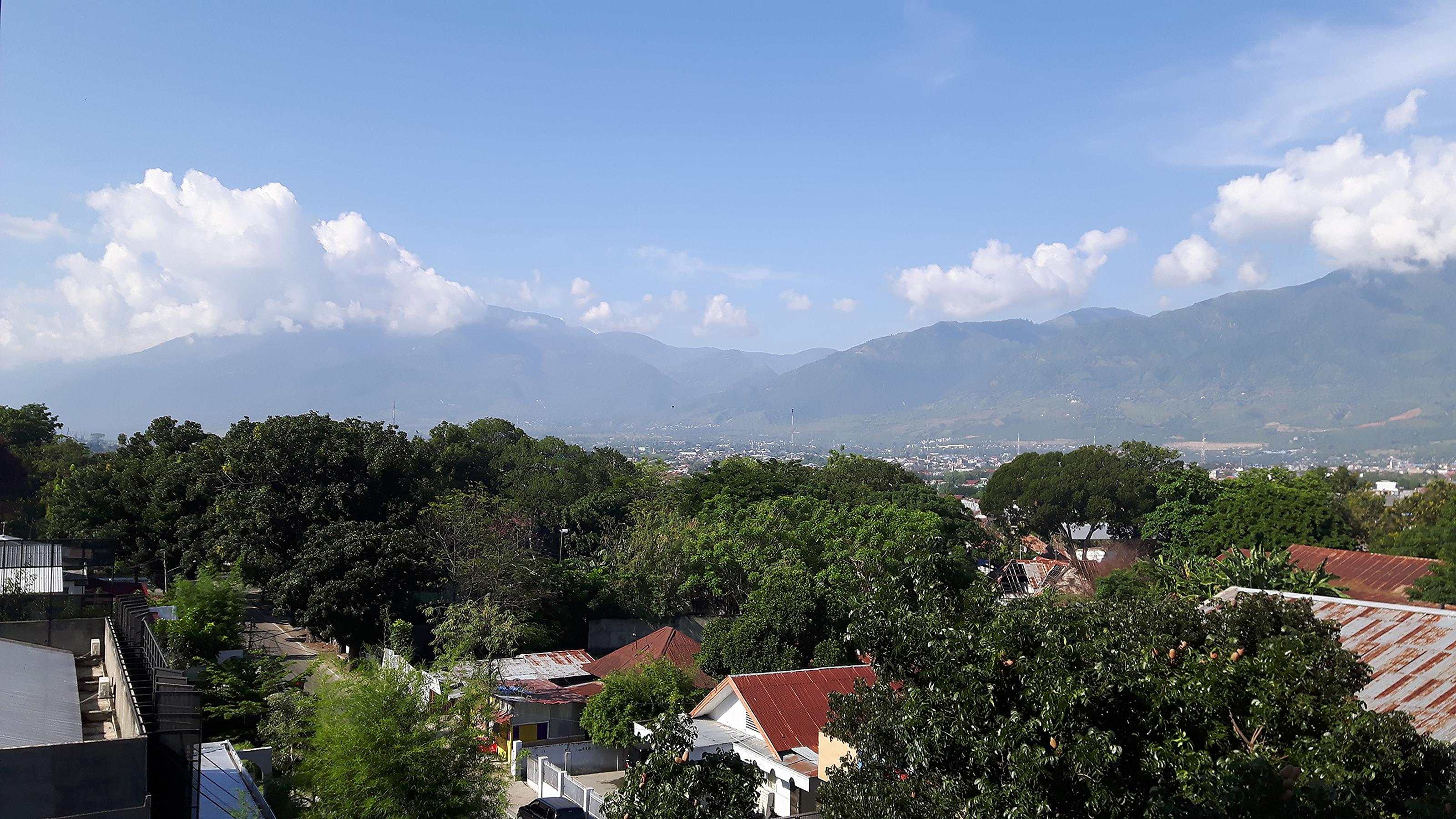Blog
KPK and the future of combating natural resources corruption in Indonesia

Note: A shorter version of this blog was published in Koran Tempo on 2 November 2020.
Indonesia is home to one of the largest remaining areas of tropical forest in the world, as well as enormous biodiversity and vast mineral wealth. It is a shame, therefore, that the country’s forests, mining resources, and biodiversity have not played a significant role in helping to boost the welfare of the majority of Indonesians. As of March 2020, the number of people living in poverty was 26.42 million. This represented an increase of 1.28 million since March 2019 (Statistics Indonesia / BPS 2020).
Even worse, the areas that produce natural resources, such as Papua, Aceh, many parts of Indonesian Borneo, and Southeast Sulawesi, are among the poorest and most underdeveloped parts of the country. All that is left for the local people after resource exploitation has come to an end are denuded forests and gaping mine pits. Meanwhile, the money all flows to a handful of ‘kingpins’, who control many millions of hectares of land.
Corruption only seriously addressed since 2015
The rampant corruption that afflicts Indonesia’s resources sector has long been a concern of the Corruption Eradication Commission (Komisi Pemberantasan Korupsi / KPK). Yet it only began to be seriously addressed after the launch of the National Movement to Save National Natural Resources (GNPSDA) in 2015. The agreement for this was signed by the President and representatives of the KPK, National Police, Attorney General’s Office, Ministry of the Environment and Forestry, Ministry of Energy and Resources, and a number of other institutions.
KPK’s Research and Development Directorate has conducted governance reviews of the coal, oil and gas, forestry, and fisheries sectors. These studies clearly reveal the poor state of governance in the natural resources arena. Unfortunately, however, little has been done. The reports have generally been ignored, year after year, by the relevant ministries and law enforcement agencies. As an example of the prevailing chaos, the review on the coal sector found that of 10,000 mining concession licenses (Izin Usaha Pemanfaatan), more than 6,000 lacked ‘clean and clear’ status. Indeed, many coal miners have no licenses at all. Thus, it should come as no surprise to see conservation areas pockmarked with gaping mine pits. Examples include Bukit Soeharto in East Kalimantan Province, as well as many other areas.
This blog does not analyse all of the major issues related to resource governance and corruption. Rather it focuses on a number of legal decisions on resources corruption in the forestry sector. These decisions were the subject of joint studies by KPK and the U4 Anti-Corruption Resource Centre, titled Corrupt Networks in the Indonesian Forestry Sector: Politics and Pulp in Pelalawan, Riau, written by Jacqui Baker, and Tackling Forestry Corruption in Indonesia: Lessons from KPK Prosecutions, written by Sofie A. Schütte and Laode M. Syarif. According to the two studies, by the end of 2019, KPK had successfully prosecuted more than 600 defendants. However, only about 5% of these were charged with forestry-sector corruption.
Large companies beyond the reach of law
As stated above, various cases have been prosecuted by KPK, with final and binding verdicts handed down. These include those of 30 defendants who were indicted by KPK by 2016 for abuse of power and/or bribery in the issuance of forestry permits.
The defendants included six parliamentarians, three governors, five heads of local government agencies, four district heads, three civil servants, and nine businesspeople. Those from governmental and parliamentary circles mostly played a role during the planning stages, such as in the Al Amin Nasution case. They also tended to be involved during the issuance of permits, as in the cases of Tengku Azmun Jaafar and Arman Batalipu (who issued permits to Siti Hartati Murdaya).
What is interesting is that those from the private sector who pay bribes, as well as applicants or recipients of permits, are almost all involved with large companies. For example, Tengku Azmun Jafaar, the Head of Pelalawan district (kabupaten), issued Industrial Plantation Forest (HTI) permits to 15 companies. All of these companies were connected to or affiliated with PT RAPP: five were acquired by PT RAPP, while the remainder were its suppliers.
Jacqui Baker describes the complex networks linking forestry-based businesses, such as Sinar Mas, APP, APRIL, and Garuda Mas, which are connected by cross-shareholdings and influence over business decisions in the forestry sector. Most appear to be beyond the reach of the law. This is both as regards upholding environmental and forestry law, and enforcement of anti-corruption law.5f6742078d52
The abuses that are taking place need to be taken seriously by all law enforcement agencies, including the Directorate General of Law Enforcement at the Ministry of the Environment and Forestry. The network of corruption and crime involving the forestry and other resources sectors extends from the centre to the regions. Meanwhile the proceeds of crime are often safely sequestered overseas. This makes it difficult for KPK and other law enforcement agencies to recover the proceeds.
Focusing on branches but ignoring roots
The most obvious aspect of the cases prosecuted by KPK to date is the focus on public officials who accept bribes and abuse their authority. Yet those who pay bribes also often continue to benefit from their crimes.
This is clearly illustrated in the following cases:
- The case of D.L. Sitorus. Here the court ordered that all illegal oil-palm plantations be seized by the state. Yet despite this, the plantations are still controlled by now-deceased D.L. Sitorus’s heirs. This is because the state seems to have deliberately failed to execute the decision of the Supreme Court.
- The case of Arman Batalipu and Siti Hartati Murdaya. Even though both have served prison terms, the principal licenses (izin prinsip) issued by Arman Batalipu remained valid. The licenses were then used by the Ministry of the Environment and Forestry as the basis for issuing Decree №517 on the relinquishment of 9,964 hectares of production forest for conversion into oil-palm plantations by PT. Hardaya Inti Plantationscfedcef062d0
- The case of Southeast Sulawesi Governor Nur Alam. He issued licenses to PT Anugrah Harisma Barakah (AHB), after receiving a bribe of US$4,499,900 (equivalent to 40.2 billion Indonesian rupiah) from Richcorp International Ltd, a subsidiary of PT AHB in Hong Kong. Despite this, PT AHB continues to conduct mining operations to this day, destroying the environment on the small island of Kabaena in Southeast Sulawesi in the process.
The above cases clearly show that KPK and other law enforcement agencies continue to focus on the ‘branches’ (the small players) while ignoring the ‘roots’ (corporate elites who ultimately benefit from the crimes). KPK only woke up from its long slumber in this regard when it charged the corporation PT Palma Satu with corporate crimes on 29 April 2019. This case was in connection with the bribing of Riau Governor Annas Maamun to secure the issuance of a permit for an oil-palm plantation in a forest zone in 2014.
Recommendations for the future
To increase the effectiveness of corruption prevention and eradication in the resources sector, KPK needs to improve the connection between prevention and enforcement. The findings of various studies conducted by the KPK’s Research and Development Directorate, in collaboration with various state ministries and agencies and independent institutions both at home and abroad, must be acted upon by making improvements to governance. This is especially in the areas of licensing, supervision, and the enforcement of the relevant sectoral laws. After all, it is much easier to prove blatant breaches of environmental law, forestry law, and mineral-resources law than it is to prove corruption crimes that are shrouded in secrecy and subterfuge.
In order to provide a deterrent effect and encourage improvements in the governance of those corporations that resort to bribery, enforcement must centre on beneficial owners and the corporations themselves. In addition, KPK investigators and prosecutors must focus more on recovering state losses and seeking compensation to pay to restore environments damaged by the perpetrators of environmental crimes. KPK must also adopt a more progressive approach in pursuing the corporate proceeds of illegally obtained licenses. It is only in this way that the owners and managers of corporations will finally agree to improve corporate governance.
KPK prosecutors also need to be more creative in formulating their indictments. This is especially so regarding the status of permits issued by officials in cases involving bribery. KPK prosecutors must unequivocally ask the courts to cancel all permits issued to corporations as a result of the bribing of public officials.
Finally, the hopes of the Indonesian people rest with the current leadership of KPK. The people want to see past shortcomings rectified and a reaffirmation of KPK’s commitment to eradicating corruption in the resources sector. Not only is such corruption highly detrimental to the state, it also deprives current and future generations of Indonesians of their birth right.
Dr Syarif is co-author of the new U4 Issue and Tackling Forestry Corruption in Indonesia: Lessons from KPK Prosecutions. Together with the U4 Issues Corrupt Networks in the Indonesian Forestry Sector: Politics and Pulp in Pelalawan, Riau and Promoting a gender-sensitive approach to addressing corruption in the forestry sector, it is the result of an 18-month collaboration between U4 and KPK, supported by German International Cooperation (GIZ).
Disclaimer
All views in this text are the author(s)’, and may differ from the U4 partner agencies’ policies.
This work is licenced under a Creative Commons Attribution-NonCommercial-NoDerivatives 4.0 International licence (CC BY-NC-ND 4.0)

